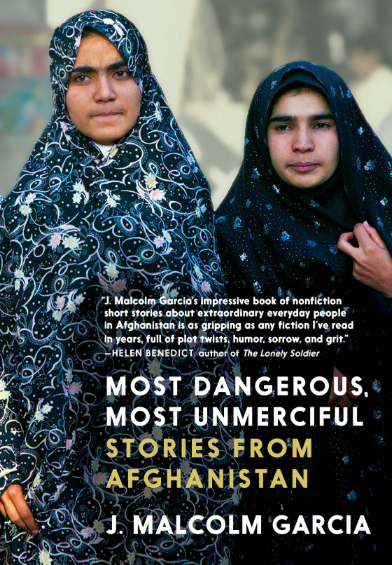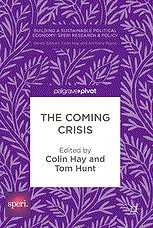Book Review by Ron Jacobs
Cross-posted from Counterpunch.

J. Malcolm Garcia is a journalist. Then again, he is so much more. He travels to lands besieged by war and imperial economic policies and exposes the human tragedy those wars and policies precipitate. He does this by telling the stories of individuals; individuals whose lives are forever changed because of Washington’s interference in their part of the world. It might be the story of a young Afghan man shining shoes to barely make a living or a couple in another part of that country whose only income comes from collecting and selling cans. Or it could be the tale of a young Muslim woman who enraged a mob of young men because of her desire for knowledge and relief from the morality police. In the violence that followed, she was killed. NATO’s soldiers did not bring her freedom.
Much of his book, Most Dangerous, Most Unmerciful: Afghan Stories, was written in 2013 when rumors began to circulate in Kabul that Washington was removing its troops. Of course, that withdrawal did not take place for seven more years in 2021. When it did occur, its chaos and aftermath was as predictable as the rising of the morning sun in the east. The Taliban and associated resistance forces moved into Kabul, its more reactionary elements closing down schools for girls and forcing women from their jobs. The United States continues to refuse releasing monies that the current regime in Kabul could use to feed Afghans and rebuild the nation’s infrastructure—an infrastructure destroyed in almost fifty years of war. War that was both instigated and continued by the government in Washington no matter which party was in power.
This book is a book about the collateral damage of Washington’s wars. It contains deeply personal vignettes about the internally displaced and the refugees seeking relative safety and a war free life. It is the story of a foreign policy that demands submission to Washington’s desires for one’s land and, if that mission fails, a policy that destroys those lands for generations. Like the young men who killed the woman mentioned above, Washington uses violence to rationalize the never-ending insecurity and as the reason for its military presence. Furthermore, as these tales attest, it is a policy that destroys cultures, families, and the mind and spirit of individuals in the zone of destruction.
Garcia’s prose is compelling and comprehensive. The individuals whose stories he relates are more than foils in a diatribe about war. In his telling, they become fully human; the circumstances of their lives often defied by the essential humanness of their hope and their hopelessness. The nature of this existence is brought to bear on the reader’s conscience via Garcia’s precise and powerful prose. The carelessness of certain Kabul youths whose families benefit from the NATO occupation is contrasted with the life of a gravedigger who buries the conflict’s victims whose names are not known. Mostly civilians, they are killed by IEDs planted to kill the occupation forces and by US armaments fired from fighter jest and gunships. The hopes of a mother who sent her children into exile hoping they will receive refuge in a European nation is preceded by a chapter describing the work of an award-winning film-maker who has devoted her life to helping the war’s many addicts clean up and stay sober. That chapter reveals a pathetic sadness that always seems to accompany hardcore addiction exacerbated by the hopeless tragedy we call war. There is a poignancy in Garcia’s telling that is tempered by the fact of his subjects’ determination to carry on. There are few unsympathetic characters in this book. In fact, other than suicide bombers, who lurk throughout the text but are never profiled, the brief vignettes detailing a squad of US troops marks those troops as the least sympathetic people in the book. Their condescension towards the Afghans—a condescension that borders on hatred—represents the arrogance of the colonizer exacerbated by the fear of the occupier’s knowledge he should not be there.
For those who find glory in war, for those who think the US military and its subsidiaries are on a mission to make the lives of those whose countries they occupy better, and for those who think war can be a humanitarian act, this book will set you straight. Those lies and more are exposed for the bullshit they truly are. With or without Garcia’s heartfelt and poignant prose, the humans portrayed in these pages lived lives almost too tragic to comprehend. The solitude of their suffering is exposed across these pages. The reality of the wars Washington justifies to maintain its power prove the falsehoods of the rationales provided to those of us who pay for them. And send our brothers and sisters to wage them, destroying something in their beings in the process.
Click here to purchase ‘Most Dangerous, Most Unmerciful: Afghan Stories’.
Publisher: Seven Stories Press
ISBN-13 : 978-1644212035




Be the first to comment